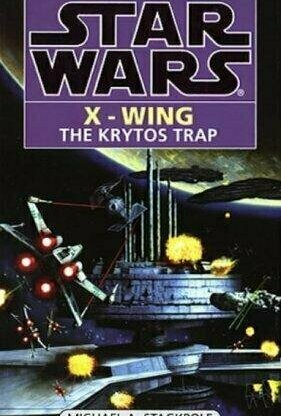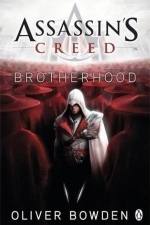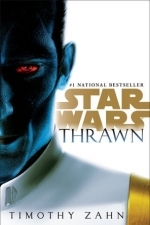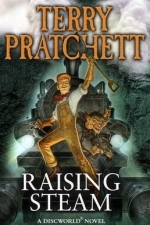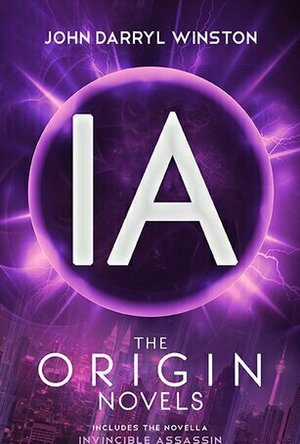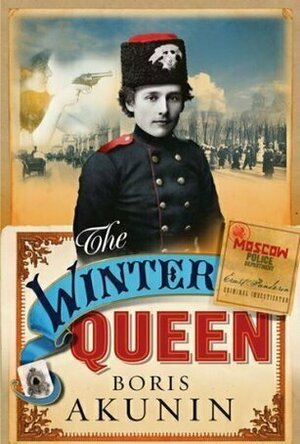Search
Search results
David McK (3692 KP) rated Star Wars X-Wing: The Krytos Trap (X-Wing #3) in Books
Oct 26, 2024 (Updated Oct 26, 2024)
Now considered part of 'Legends' rather than canon, this is the third in the 90s series of Star Wars: X Wing books by MMichael A Stackpole, back before the sequels and even before the prequels were a thing!
Here, this novel primarily deals with the fallout from the conquest of Coruscant (or Imperial Centre, as it was originally called in the films), with the main character of Corran Horn captured by Ysanne Isard and believed dead by his comrades.
Isard, meanwhile, has unleashed a deadly contagion upon the denizens of the city planet in a plan to stir up foment amongst the various species (and leaders) of the New Republic.
While the novel does show its age somewhat - Jedi had family, no Padawans (remember, written before the prequels!) - this is still an entertaining read that, I feel, stands up well amongst several of the 'newer' novels.
Here, this novel primarily deals with the fallout from the conquest of Coruscant (or Imperial Centre, as it was originally called in the films), with the main character of Corran Horn captured by Ysanne Isard and believed dead by his comrades.
Isard, meanwhile, has unleashed a deadly contagion upon the denizens of the city planet in a plan to stir up foment amongst the various species (and leaders) of the New Republic.
While the novel does show its age somewhat - Jedi had family, no Padawans (remember, written before the prequels!) - this is still an entertaining read that, I feel, stands up well amongst several of the 'newer' novels.
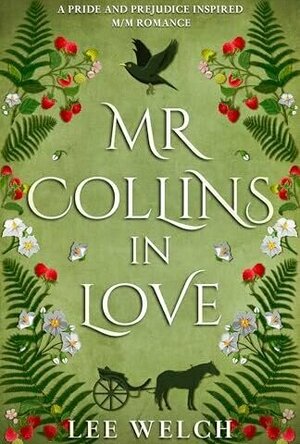
Mr Collins in Love
Book
The year is 1811 and the new rector of Hunsford, Mr William Collins, must be above reproach. He must...
MM Historical Romance

comiXology - Comics & Manga
Book, Comics and Entertainment
App
Are you ready to explore over 100,000 digital comics, graphic novels and manga from Marvel, DC,...
Connor Sheffield (293 KP) rated Assassin's Creed: Brotherhood in Books
May 15, 2017
Continuation of the story (2 more)
Remaining true to the video games
Remaining true to the franchise
The Story Continues
The second novel to be released in the series continues the story of Ezio Auditore, just as the game of the same title did. Ezio has concentrated his efforts to bring down the Borgia family and the Templar Order, and traveled to Rome in order to complete his work that he started some years ago. Now a Master Assassin, Ezio must recruit his own brotherhood of Assassin's if he is to defeat the Templar Order.
The story of Ezio, allows us an insight as to his character development, as he grows from a young man seeking revenge, to a Master Assassin, seeking to bring down the Templar Order for the fate of the world depends upon the succession of the Assassin's. Rome is yet another brilliant setting for the Assassin's Creed franchise to take place and Ezio is certainly one of the most interesting Assassin's to follow throughout the franchise.
With help yet again from his previous allies, including Leonardo Da Vinci, the story told here is one of mystery and excitement.
I'm not sure how many times I can praise Bowden for his work on this series. All I can say is that he does not fail to entertain and reveal a new experience to the world of Assassin's Creed. If you have read my previous reviews then you know how much I praise this man for his work on the series of Novels he has written for the fans. Each one delivers a new thrilling experience and each one stays true to the events of the video game as much as possible. Of course each person who plays the video game plays differently. These novels give more of a sense of what the Assassin's themselves would have truly done in the events that unfold.
The story of Ezio, allows us an insight as to his character development, as he grows from a young man seeking revenge, to a Master Assassin, seeking to bring down the Templar Order for the fate of the world depends upon the succession of the Assassin's. Rome is yet another brilliant setting for the Assassin's Creed franchise to take place and Ezio is certainly one of the most interesting Assassin's to follow throughout the franchise.
With help yet again from his previous allies, including Leonardo Da Vinci, the story told here is one of mystery and excitement.
I'm not sure how many times I can praise Bowden for his work on this series. All I can say is that he does not fail to entertain and reveal a new experience to the world of Assassin's Creed. If you have read my previous reviews then you know how much I praise this man for his work on the series of Novels he has written for the fans. Each one delivers a new thrilling experience and each one stays true to the events of the video game as much as possible. Of course each person who plays the video game plays differently. These novels give more of a sense of what the Assassin's themselves would have truly done in the events that unfold.
ArecRain (8 KP) rated Corralled (Blacktop Cowboys, #1) in Books
Jan 18, 2018
Cowboy rodeo erotica? You have my interest. From the moment I saw this book on goodreads bookswap, I could not wait to read it. I love me some erotica. Add some cowboys in the mix and I am happy as a clam. Until I read it.
Because I dont really have much to say about this book, here goes.
The good: the erotic scenes, the character development, the dialogue,
the writing
The bad: the plot (which bored me senseless), the favoritism
The ugly: the situation
While there is nothing actually wrong with the novel, I just could not get into it. James has a great easy style to read. The erotic scenes were great, some of the best I have read, especially when dealing with such an awkward situation. And oh was it awkward. The dialogue was realistic and had me not only laughing, but cringing as well. The characters and the emotions were also very believable. I found myself becoming attached to them
The plot seemed a little lackluster, however. I will gave James points for having one of the few erotic novels with a well developed plot in the first place. As I said before, however, it was just not a story I was interested in. It was clear from the beginning who the lead female was going to end up with. I dont think James did it on purpose, but her clear favoritism for one man over the other was apparent from the beginning.
This was not an easy book to read in the first place due to the circumstances of the love triangle. All of the ménage a trios novels I have read before, the couples were into it as a threesome. In this novel, two men are vying the attention and love of one woman. It was awkward at best, especially since the men were childhood friends.
Because I dont really have much to say about this book, here goes.
The good: the erotic scenes, the character development, the dialogue,
the writing
The bad: the plot (which bored me senseless), the favoritism
The ugly: the situation
While there is nothing actually wrong with the novel, I just could not get into it. James has a great easy style to read. The erotic scenes were great, some of the best I have read, especially when dealing with such an awkward situation. And oh was it awkward. The dialogue was realistic and had me not only laughing, but cringing as well. The characters and the emotions were also very believable. I found myself becoming attached to them
The plot seemed a little lackluster, however. I will gave James points for having one of the few erotic novels with a well developed plot in the first place. As I said before, however, it was just not a story I was interested in. It was clear from the beginning who the lead female was going to end up with. I dont think James did it on purpose, but her clear favoritism for one man over the other was apparent from the beginning.
This was not an easy book to read in the first place due to the circumstances of the love triangle. All of the ménage a trios novels I have read before, the couples were into it as a threesome. In this novel, two men are vying the attention and love of one woman. It was awkward at best, especially since the men were childhood friends.
David McK (3692 KP) rated Thrawn (Star Wars: Thrawn #1) in Books
Jan 28, 2019
I think therte may have been other Star Wars books prior to [a:Timothy Zahn|12479|Timothy Zahn|https://images.gr-assets.com/authors/1215545810p2/12479.jpg]'s 'Heir to the Empire' trilogy, but I believe all those were set during (or prior to) the events of the movies, with Zahn holding the position of being the first author to be licensed to extend the story beyond the end of 'Return of the Jedi', and thus to kickstart the whole Extended Universe (or EU) of the Star Wars stories prior to the abolition of the same when Disnay acquired Luasfilm.
The three novels in that series - [b:Heir to the Empire|216443|Heir to the Empire (Star Wars The Thrawn Trilogy #1)|Timothy Zahn|https://images.gr-assets.com/books/1398253847s/216443.jpg|1133995], [b:Dark Force Rising|216442|Dark Force Rising|Timothy Zahn|https://images.gr-assets.com/books/1451092000s/216442.jpg|463790] and [b:The Last Command|216422|The Last Command|Timothy Zahn|https://images.gr-assets.com/books/1451092026s/216422.jpg|397139] - set a VERY high bar for the subsequent novels to reach, mainly due to who would become a fan favourite character: that of Grand Admiral Thrawn. Thrawn's past, however, was only ever hinted at in those stories.
When Disney acquired Lucasfilm (and did away with the old EU, renaming them Legends), they did state, however, that they would 'cherry-pick' the best parts for inclusion in the Disney Star Wars canon: a promise they kept when Thrawn appeared as one of the key villains in the third season of the animated TV show 'Star Wars: Rebels'. And, in this, Zahn once again returns to perhaps his most famous creation, filling in (some of) the blans about his early days in the Imperial Navy.
However, this does not concentrate solely on Thrawn himself, but on a couple of other ancillary characters to him (no Rukh or the Noghri, yet), including Ariahdne Pryce - another Imperial from that TV show (and the sections of the novel dealing wih her of which, I found, to be the least interesting).
The three novels in that series - [b:Heir to the Empire|216443|Heir to the Empire (Star Wars The Thrawn Trilogy #1)|Timothy Zahn|https://images.gr-assets.com/books/1398253847s/216443.jpg|1133995], [b:Dark Force Rising|216442|Dark Force Rising|Timothy Zahn|https://images.gr-assets.com/books/1451092000s/216442.jpg|463790] and [b:The Last Command|216422|The Last Command|Timothy Zahn|https://images.gr-assets.com/books/1451092026s/216422.jpg|397139] - set a VERY high bar for the subsequent novels to reach, mainly due to who would become a fan favourite character: that of Grand Admiral Thrawn. Thrawn's past, however, was only ever hinted at in those stories.
When Disney acquired Lucasfilm (and did away with the old EU, renaming them Legends), they did state, however, that they would 'cherry-pick' the best parts for inclusion in the Disney Star Wars canon: a promise they kept when Thrawn appeared as one of the key villains in the third season of the animated TV show 'Star Wars: Rebels'. And, in this, Zahn once again returns to perhaps his most famous creation, filling in (some of) the blans about his early days in the Imperial Navy.
However, this does not concentrate solely on Thrawn himself, but on a couple of other ancillary characters to him (no Rukh or the Noghri, yet), including Ariahdne Pryce - another Imperial from that TV show (and the sections of the novel dealing wih her of which, I found, to be the least interesting).
David McK (3692 KP) rated Raising Steam: (Discworld Novel 40) in Books
Jan 28, 2019
The 40th(!) Discworld novel, that probably best fits into the Industrial Revolution sub-series of such novels (i.e. [b:Moving Pictures|34510|Moving Pictures (Discworld, #10)|Terry Pratchett|https://d202m5krfqbpi5.cloudfront.net/books/1320456553s/34510.jpg|1229354], [b:The Truth|51737|The Truth About Forever|Sarah Dessen|https://d202m5krfqbpi5.cloudfront.net/books/1362767907s/51737.jpg|1032900], [b:Monstrous Regiment|34511|Monstrous Regiment The Play|Stephen Briggs|https://d202m5krfqbpi5.cloudfront.net/books/1375908503s/34511.jpg|2073281], [b:Going Postal|64222|Going Postal (Discworld, #33)|Terry Pratchett|https://d202m5krfqbpi5.cloudfront.net/books/1388236899s/64222.jpg|1636617] and [b:Making Money|116296|Making Money (Discworld, #36)|Terry Pratchett|https://d202m5krfqbpi5.cloudfront.net/books/1386925136s/116296.jpg|144656] (possibly also including [b:Unseen Academicals|6250169|Unseen Academicals (Discworld, #37)|Terry Pratchett|https://d202m5krfqbpi5.cloudfront.net/books/1388348045s/6250169.jpg|6432996] and [b:Snuff|1840511|Snuff|Chuck Palahniuk|https://d202m5krfqbpi5.cloudfront.net/books/1320410088s/1840511.jpg|2034926])), and is also the third book to feature Moist Von Lipwig as the main protaganist (after [b:Going Postal|64222|Going Postal (Discworld, #33)|Terry Pratchett|https://d202m5krfqbpi5.cloudfront.net/books/1388236899s/64222.jpg|1636617] and [b:Making Money|116296|Making Money (Discworld, #36)|Terry Pratchett|https://d202m5krfqbpi5.cloudfront.net/books/1386925136s/116296.jpg|144656]).
This one is to do with the introduction of the railway to the Discworld, and also offers many a reference to previous characters and situations in the series as a whole: indeed, at times, it almost feels as if Pratchett is trying to squeeze as many in as possible.
Unfortunately, it's also not his best: I have to admit, in general, I've found most of his Industrial Revolution novels to not be as good as, say, those based around either The City Watch or those based around The Witches. Like the locomotive on which it is based, I found this one to take a fair bit of time to gather steam, and to feel a wee bit ponderous and unwieldy - this, I have to say, is not a novel I would use to introduce somebody new to the delights of the Discworld. :-(
This one is to do with the introduction of the railway to the Discworld, and also offers many a reference to previous characters and situations in the series as a whole: indeed, at times, it almost feels as if Pratchett is trying to squeeze as many in as possible.
Unfortunately, it's also not his best: I have to admit, in general, I've found most of his Industrial Revolution novels to not be as good as, say, those based around either The City Watch or those based around The Witches. Like the locomotive on which it is based, I found this one to take a fair bit of time to gather steam, and to feel a wee bit ponderous and unwieldy - this, I have to say, is not a novel I would use to introduce somebody new to the delights of the Discworld. :-(
I read Giles Kristian's Raven: Blood Eye series of books a few year back.
They were enjoyable, I felt, but not the greatest such novels I'd ever read (I enjoyed the first one the most)
I also, relatively recently, read the first in his 'Rise of Sigurd' prequel novels and felt that one, at times, to be a bit of a chore to get through.
As such, I'd never really gone out of my way to look for any other book by Giles Kristian
However, being the optimist that I (sometimes) am, with loads of adverts extolling its virtue on a popular social-media networking site and with a intriguing premise, I thought I would give this one a go.
And I'm glad I did: it's in (I felt) a completely different league that any of his previous.
This is, effectively, a semi-historical re-telling of the Arthurian myth unique, however, in that it is told from the point of view of Lancelot himself: one third of, perhaps, the most well known love-triangle in the English language but of whom has always been given short shrift, dropping in and out of the Arthurian myth.
This, however, turns that on it's head, with Arthur only appearing roughly about half-way through this book, and with Lancelot having previous history with Guinevere before she is even Arthur's wife. This work follows him right from his boyhood, through his rescue and upbringing by Lady Nimue (Arthurian myth name drop? Check), his first meetings with Merlin (another check) and with Arthur (major check), the reimagined Excalibur (check) and the Lady of the Lake ("listen, just 'cos some watery tart threw a sword at you …"), Mordred (yet another check), his love affair with Guinevere, his exile and even Mordred's betrayal of Arthur.
I have to say, I really enjoyed this: a strong contender for the best book I've read so far this year.
They were enjoyable, I felt, but not the greatest such novels I'd ever read (I enjoyed the first one the most)
I also, relatively recently, read the first in his 'Rise of Sigurd' prequel novels and felt that one, at times, to be a bit of a chore to get through.
As such, I'd never really gone out of my way to look for any other book by Giles Kristian
However, being the optimist that I (sometimes) am, with loads of adverts extolling its virtue on a popular social-media networking site and with a intriguing premise, I thought I would give this one a go.
And I'm glad I did: it's in (I felt) a completely different league that any of his previous.
This is, effectively, a semi-historical re-telling of the Arthurian myth unique, however, in that it is told from the point of view of Lancelot himself: one third of, perhaps, the most well known love-triangle in the English language but of whom has always been given short shrift, dropping in and out of the Arthurian myth.
This, however, turns that on it's head, with Arthur only appearing roughly about half-way through this book, and with Lancelot having previous history with Guinevere before she is even Arthur's wife. This work follows him right from his boyhood, through his rescue and upbringing by Lady Nimue (Arthurian myth name drop? Check), his first meetings with Merlin (another check) and with Arthur (major check), the reimagined Excalibur (check) and the Lady of the Lake ("listen, just 'cos some watery tart threw a sword at you …"), Mordred (yet another check), his love affair with Guinevere, his exile and even Mordred's betrayal of Arthur.
I have to say, I really enjoyed this: a strong contender for the best book I've read so far this year.
Phil Leader (619 KP) rated IA: The Origin Novels (Books 1-3) in Books
Nov 15, 2019
The IA novels are one of the strongest 'young adult' science fiction series I've read, and this edition combines the trilogy so far plus a novella. Since the reader will want to keep reading from the first page though all 3.5 books this seems like an opportunity that's hard to pass up.
The origin story involves Naz, a teenage boy who lives with his sister and aunt in the Exclave, a ghetto suburb of a large city. Naz is unusual in two ways - he can't remember anything before two years ago and he sometimes hears voices in his head. He doesn't like to draw attention though so keeps his head down and looks after his sister.
After an incident on the way to school, things start to change. He grows as a person and also begins to discover his past, and his potential for the future. Just perhaps one person can make a difference. As he continues on his journey it becomes clear that he may not be entirely on his own.
The stories are set in a near future, with the Exclave being a rather grim backdrop for a tale that concentrates on character. There are light touches of what could be termed science fiction throughout, both with Naz's backstory and in the world around him. The hero shows very real weaknesses and flaws as well as strengths as he battles through bullying, fitting in to new environments, love and loss.
Winston is an extremely talented author and these stories demonstrate why novels termed 'young adult' are frequently worthy of being read by an older audience. The character development shows a strong arc for all the main players - and even the bit parts are memorable.
If you are looking for a strong series of books that will keep you thinking and entertained long after you have finished the last page, this fits the bill to a tee.
The origin story involves Naz, a teenage boy who lives with his sister and aunt in the Exclave, a ghetto suburb of a large city. Naz is unusual in two ways - he can't remember anything before two years ago and he sometimes hears voices in his head. He doesn't like to draw attention though so keeps his head down and looks after his sister.
After an incident on the way to school, things start to change. He grows as a person and also begins to discover his past, and his potential for the future. Just perhaps one person can make a difference. As he continues on his journey it becomes clear that he may not be entirely on his own.
The stories are set in a near future, with the Exclave being a rather grim backdrop for a tale that concentrates on character. There are light touches of what could be termed science fiction throughout, both with Naz's backstory and in the world around him. The hero shows very real weaknesses and flaws as well as strengths as he battles through bullying, fitting in to new environments, love and loss.
Winston is an extremely talented author and these stories demonstrate why novels termed 'young adult' are frequently worthy of being read by an older audience. The character development shows a strong arc for all the main players - and even the bit parts are memorable.
If you are looking for a strong series of books that will keep you thinking and entertained long after you have finished the last page, this fits the bill to a tee.
Phil Leader (619 KP) rated The Winter Queen (Erast Fandorin #1) in Books
Nov 28, 2019
Erast Fandorin is a low level civil servant in nineteenth century Russia. An orphan with no real friends or prospects he has been assigned to the police department as a clerk simply because he has to be somewhere. But following a bizarre suicide Fandorin reveals that under his unassuming exterior is a keen mind and he soon uncovers sinister goings on both at home in Russia and abroad in London.
This is the first appearance of Akunin's master detective. Lacking the arrogance of either Holmes or Poirot but easily their equal in terms of deduction and intelligence he makes a good hero. Each of Akunin's novels is designed to represent a different type of novel and this is closest to spy novels with Fandorin spending much of his time going undercover to infiltrate a secret society or staking out and sneaking into houses. There are also plenty of physical scenes for the young hero to endure.
The plot is suitably obscure and opaque with each clue removing another layer and moving both the reader and Fandorin closer to finding out what is going on.
There is also fascinating detail of life in Tsarist Russia although as with any novel set during that time the seemingly endless Russian names - so hard to pronounce for my Anglophone brain - are sometimes a little overwhelming.
Special mention to the translator who does a fantastic job. Some Russion idioms are left intact for authenticity but others are rendered into English. This may have been originally written in Russian but it reads as if Akunin is a native English speaker.
This wasn't my first Fandorin novel and to be honest I'm not sure it's the best one to start with, despite it being the genesis of the character. To me the complexities of having to understand the Tsarist Russia (and the names) and the plot would be frustrating. But nevertheless a good and interesting read.
This is the first appearance of Akunin's master detective. Lacking the arrogance of either Holmes or Poirot but easily their equal in terms of deduction and intelligence he makes a good hero. Each of Akunin's novels is designed to represent a different type of novel and this is closest to spy novels with Fandorin spending much of his time going undercover to infiltrate a secret society or staking out and sneaking into houses. There are also plenty of physical scenes for the young hero to endure.
The plot is suitably obscure and opaque with each clue removing another layer and moving both the reader and Fandorin closer to finding out what is going on.
There is also fascinating detail of life in Tsarist Russia although as with any novel set during that time the seemingly endless Russian names - so hard to pronounce for my Anglophone brain - are sometimes a little overwhelming.
Special mention to the translator who does a fantastic job. Some Russion idioms are left intact for authenticity but others are rendered into English. This may have been originally written in Russian but it reads as if Akunin is a native English speaker.
This wasn't my first Fandorin novel and to be honest I'm not sure it's the best one to start with, despite it being the genesis of the character. To me the complexities of having to understand the Tsarist Russia (and the names) and the plot would be frustrating. But nevertheless a good and interesting read.
